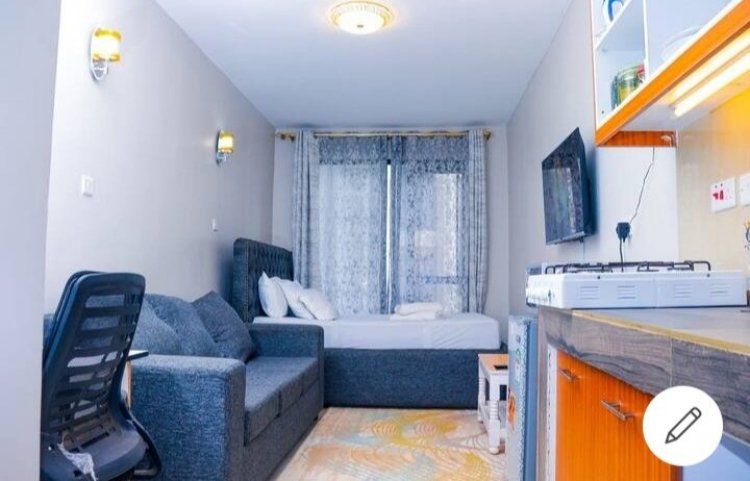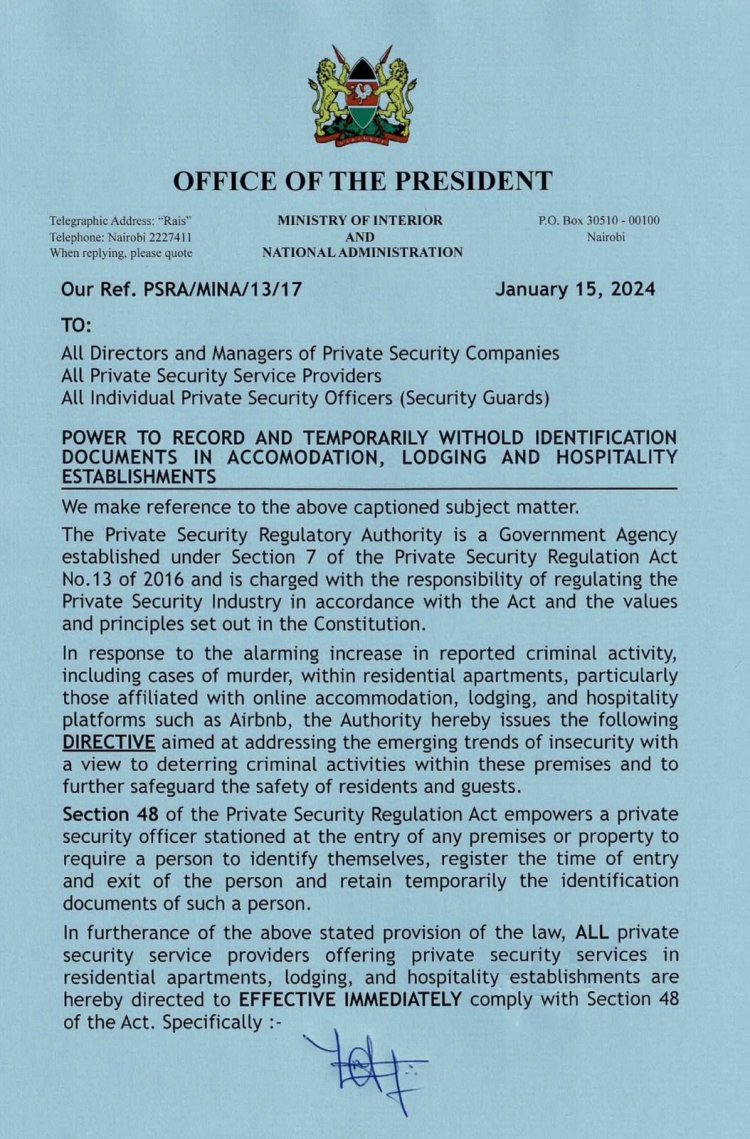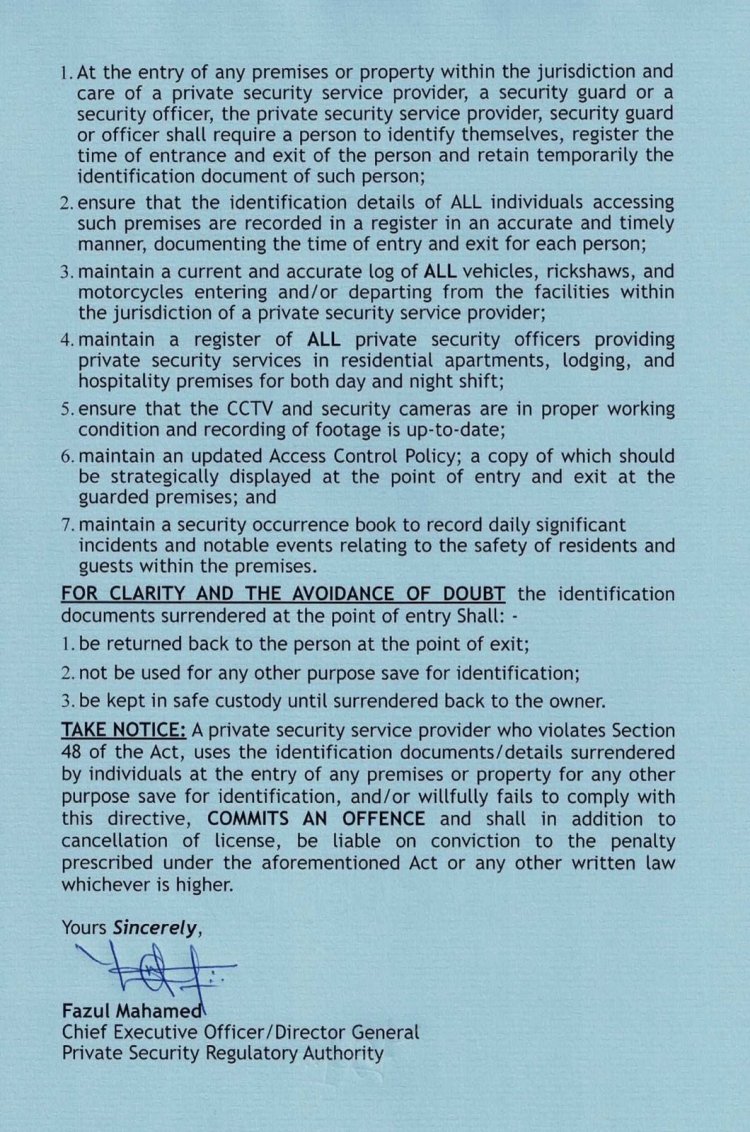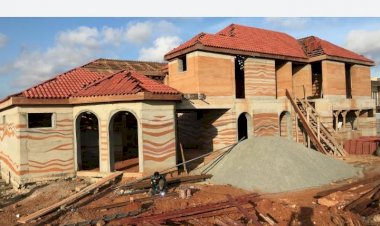5 Risks of Operating an Airbnb Business in Kenya
Recently the Kenyan government outlined CCTV cameras as a mandatory requirement in any apartment operating as Airbnb.

The recent disturbing events of the gruesome murder of two young girls in Nairobi Airbnb rental apartments in just less than two weeks have struck different debates and opinions amongst Kenyans regarding Airbnb, their safety and regulations in Kenya.
As investors in the Airbnb business, in the day-to-day activities of providing accommodations for short-term stays and sometimes long stays, other glaring risks can disrupt the flow of business. It is of great importance to be aware of these risks to be proactive on them.
With Nairobi city being the capital of Kenya, it attracts many visitors in and out every day from both the rural and urban, which contributes to the well thriving hospitality industry of Airbnbs.
If you are looking to venture into this business or already are, here are some of the risks that you should look out for and how best to avoid and overcome them when operating an Airbnb in Kenya, especially in Nairobi.
1. Crime and Violence
The recent upsurge of violent killings in Nairobi rental apartments in Roysambu and earlier on in South B are examples of the risks that can come with providing homestay services. Proper documentation should at all times be provided by guests willing to rent Airbnb spaces such that in the event of any suspicion of illegal activity, there is sufficient information to necessitate fast help by the authorities.
Recently the Kenyan government outlined CCTV cameras as a mandatory requirement in any apartment operating as Airbnb.
Theft is another risk that is associated with operating an Airbnb business. Swindlers pose as clients and upon check out they leave with valuable items such as house decor, lights carpets and electronics. Earlier in November 2023, Mungai Eve, a well-known YouTuber in Kenya took to her channel to confirm theft allegations against their Airbnb in Kilimani. The suspicious clients booked a unit as usual with empty large brief cases which they later stuffed in different valuable items amounting to to 200,000 Kenyan shillings, the YouTuber narrated.
2. Scammers
Scammers are known for conning unsuspecting hosts who are ignorant of their common tricks to get money from them. They do so by presenting different well-thought-out strategies that they present to hosts as valuable deals. Tricks such as delaying payment and later defaulting to pay are common in the industry.
Some scammers pose as company employees and offer to host them, explaining the company will be paying for their accommodation. They then go forward to explain how you can mutually benefit by them booking a unit with you and pay fully however they will not actually be there and you get to split the paid money in agreed percentages. This might look like a genuine offer but in reality, this is a scammer using a credit card to book accommodations. If the card accepts the payment you become an accomplice in credit card fraud.
3. Property Damage
Unruly behaviour can lead to property damage during an Airbnb stay. In the event of parties, property such as TVs, utensils and furniture might get damaged. It is important to have prior notice of full accountability in case of any damages.
4. Legal Changes
Legal compliance might be a challenge as different policies are enhanced from time to time. For instance, Airbnbs did not have a formal way to pay taxes in Kenya for a long time, however as of January 2021, the Kenyan government started implementing the Digital Service Tax (DST) that required businesses operating online to pay Value Added Tax (VAT). Online booking apps automatically deduct these taxes on top of their payable commissions. Such tax adjustments that may come as an unwelcome surprise may pose a financial challenge to hosts.
It is important to prepare for unforeseen legal changes that may come as a financial constraint, or hinder normal business operations that might take time to overcome. The recent requirement by the government to have all businesses operating in Kenya have CCTV cameras is another example of such challenges. Hosts operating in buildings without CCTV will have to purchase them and additionally enhance their security measures.


[Image of a copy of directives from the Private Security Regulatory Authority]
5. Off Seasons
Just like any other business, there are peak seasons in the Airbnb business and off-peak seasons. There are periods with constant bookings where one can make huge profits and periods where the bookings decline. It is important to be prepared for such times when profits are hard to meet. During holidays, weekends, sports events and other similar events bookings are usually many and Airbnb business performs well. Other times there can be a decline in the number of bookings. At the moment Airbnbs are trending in a bad light, and it goes without saying that this is not the most enticing moment to have an Airbnb stay unless there really is a need. This comes as a challenge to Airbnb hosts, agents and other persons benefiting from the Airbnb business directly or indirectly.
If you have a real estate press release or any other information that you would like featured on the African Real Estate Blog Post do reach out to us via email at [email protected]

 Ann Mwangi
Ann Mwangi 

























![7 Famous Architectures in Africa [PHOTOS]](https://realestateblogpost.com/uploads/images/2023/05/image_380x226_646c9c2bd8642.jpg)




